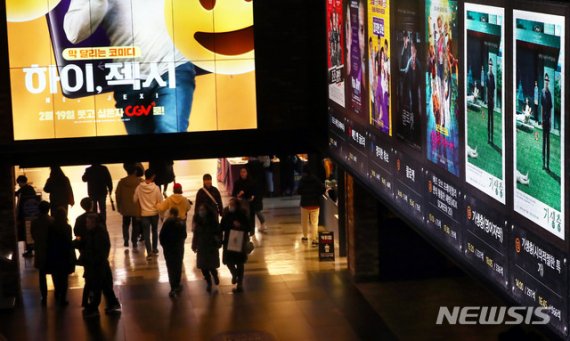
1,325 filmmakers signed the Post Bong Joon-ho Act, which aims to improve the structure of the film industry. “Will the second Bong Joon-ho come out of the Korean film industry, which is trapped in the barrier of 97% monopoly?” he said, adding that three tasks should be solved to create a beneficial film ecosystem for everyone beyond the 97% monopoly barrier.
The Preparatory Meeting for the Structural Improvement of the Film Industry (hereinafter referred to as the Preparatory Meeting) will be held on the 26th by director Im Kwon-taek and Lee Chang-dong, actors Ahn Sung-ki and Jung Woo-sung and Moon So-ri, as well as the restriction on the distribution of movies and commercial business of For business, the prohibition of screen monopoly of certain films, and the Korean independence movement He said he signed the declaration, a film that contains three requirements: art films and support institutionalization.
First, three For businesses, which are both distribution and commercial sales, accounted for 97% of the admission fee for Korean theaters, claiming a 'common business restriction'. “The theater can’t say all their unfairness, such as adjusting the insufficiency to favor itself, overthrowing the free invitation, eating away at the sales of the movie, monopolizing the profits of the advertisement in the theater, and passing the advertising expenses that they have to pay to the distributor,” he said. “The United States has already banned distribution and commercial business in 1948 (paramount precedents), and the precedents are still valid at the time,” he said. “Our Constitution also stipulates the prevention of market dominance and abuse of economic power in Article 119 (2) (economic democratization), so we should dismantle the barrier of 97% monopoly through restrictions on concurrent business.
He also mentioned the France case and insisted that "no screen monopoly of certain movies" is necessary. “The theaters prefer movies that attract audiences in a short period of time, but the screen monopoly behavior of the Republic of Korea has gone too far,” he said. “In the case of a popular movie last year, it had a whopping 81% of the screening share.” France can not exceed 30% of the number of screenings per day in theaters with 8 or more screens through 'Movie Video Act' and 'Organization Agreement', and in large Multiplexes with 15 to 27 screens, only 4 screens can be allocated to one movie per day. The preparatory group argued that "the screen cap system should guarantee the equality of opportunities for small films and expand the audience's right to enjoy movies."
Finally, I mentioned Korean independence movement and institutionalization of art film and private-use support. “The opening Korean independence movement and art films account for 9.5% of the total number of releases, but the audience share is only 0.5%,” he said. “If it was the same environment today, director Bong Joon-ho’s debut film, “The Dog of Flaandas,” which was released in 2000, would not have had a chance to produce, and therefore there may not have been the present Bong Joon-ho”
“The revision of the film law requires that the Korean independence movement and the art movie theater be designated by the Korean independence movement and the art movie theater, and the Korean independence movement and the art movie recognized by the Film Promotion Committee should be screened more than 60/100 per year, and the state should support the theater in various ways,” he said. “It should be an environment that can be done.”
The preparatory meeting was signed by filmmakers from 17th to 25th, and said that the 21st National Assembly will try to legislate three requirements.